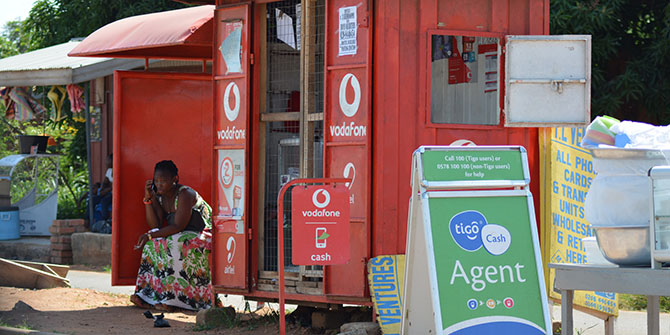LSE alumnus Rauf Aregbesola looks at whether Africa’s technology revolution is all that it is hyped up to be.
“A hopeful continent”, “The next frontier for investors”, “A dark horse in the digital revolution”. Sound familiar? These are just a few of the catchphrases often found in articles from The Economist, The Wall Street Journal, and The New York Times, focusing on the one continent – Africa. Before this piece is quickly labelled as yet more mundane rhetoric on a “Rising Africa”, it is important to note that there is a buzz running through urban areas and cities in Africa, much of which revolves around technology.
From Lagos to Kampala, Dar es Salaam to Dakar, Nairobi to Cape Town and all across the African continent, new innovation hubs and collaborative work spaces have been springing up as beacons for the hi-tech hopes of aspiring tech-oriented entrepreneurs. According to Bongohive’s Africa Hubs map, there are currently well over 100 hubs across the continent. Recent statistics also indicate that new hubs emerge in Africa every two weeks. These hubs are described as a nexus for technologists, investors, young entrepreneurs and creatives among others to exchange ideas and resources as well as help catalyse the process of open innovation within the technology ecosystem.

The Kenya success story?
As Eric Schmidt (the executive chairman of Google) surmised: “Nairobi has emerged as a serious tech hub and may become the African leader”. From the mobile money transfer service (M-Pesa) to the open source information collection and visualisation platform (Ushahidi) to the more recent crowdfunded internet connectivity device (BRCK), it goes without saying that Nairobi has been the birthplace of some of the most “indigenous” tech innovations to come out of Africa. One person with first hand experience in implementing these innovations is iHub co-founder Julianna Rotich. Along with her team, Rotich developed the Ushahidi platform to facilitate crowd-sourced reporting of violence during the 2007-2008 Kenya presidential elections. This platform now serves a global audience, covering numerous crisis-hit regions including: Chile, Haiti, Russia and USA. Following the development of Ushahidi, Rotich, as an advocate of socially embedded innovations went on to co-found the iHub workspace, where BRCK was implemented – a device specifically designed to offer resilient Internet connectivity for the developing world. According to a BBC Future article, it is these innovations and hubs that has led to Nairobi becoming the darling of the tech sector.
Making sense of the two faces of African tech hubs
In harmony with this narrative, tech pundits have quickly jumped on the bandwagon and assigned the “Silicon” title to several African cities with tech hubs, almost as if to squeeze out a non-existent shared repertoire between African and US-based startups communities. From “Silicon Savannah” (Nairobi), to “Silicon Lagoon” (Lagos), to “Silicon Cape” (Cape Town), a supposed digital revolution is said to be spreading across the continent, which is attributed to the increasing tech incubation hubs, ICT events and competitions. However, beyond this hype lies a sterner reality of much fewer key players and shapers, an overt focus on grants and donor funding as opposed to actual investment in local start-ups and a culture that stifles entrepreneurship.
In her article, LSE’s Mairi Tejani explored some of the finance challenges African entrepreneurs face. In addition, cultural concerns are often cited by startup analysts in the region. Particularly, there is the view that overt reliance on donor and grant funding offered by big firms through ICT competitions have misdirected technologists and aspiring entrepreneurs into believing that this is a genuine business model for funding their ideas. Beyond the initial momentum these competitions help generate, they often lack a sustainable marketing plan or revenue model. In this vein, there is a need for an overhaul of the African entrepreneur’s mindset to sell their respective tech spaces as an investment destination not merely a free-for-all grant destination.
Another major concern with these tech spaces is need for more organisation and major collaboration between key local players and other hubs. While governments are often quick to dance to the tune of tech hub hype at their launch events, the reality is that their promises often fall short beyond the provision of one-off grants. As Gossy Ukanwoke, founder of online university Beni American University Online put it: “In Nigeria, we don’t have an ecosystem, we have clusters of people doing their own thing”. There is no doubt that a thriving start-up scene exists in this region, the challenge is that there is very little organisation or an established process. African governments and its private sector must therefore become proactive in supporting local start-ups, as grants and foreign investor money will not last forever, while tech hubs must shape its own destiny by forming communities of practice and learning from experiences of other hubs in the Africa region. Enough of these “Why iHub is cooler than CC-Hub” type debates and articles and more of sharing learning points from various hubs. Thought leaders of Africa tech and start-up space share a common voice when they say the excitement around the sector has suffered from too much hype in recent times. It is high time we learned to walk and begin our steady ascent to greatness and make good things happen, instead of bandying “Silicon” titles.
The logical questions to ask at this point remain: Why are there so many hubs in Africa? Are they solving indigenous problems on the continent or responding to media hype? Are they the best way to build entrepreneurship and youth development in Africa? These are precisely the sorts of questions iHub co-founder Julianna Rotich will be addressing at the 2014 LSE Africa Summit on 5 April.
Follow Rauf on twitter @RaufJR.






Thank you for this informative piece